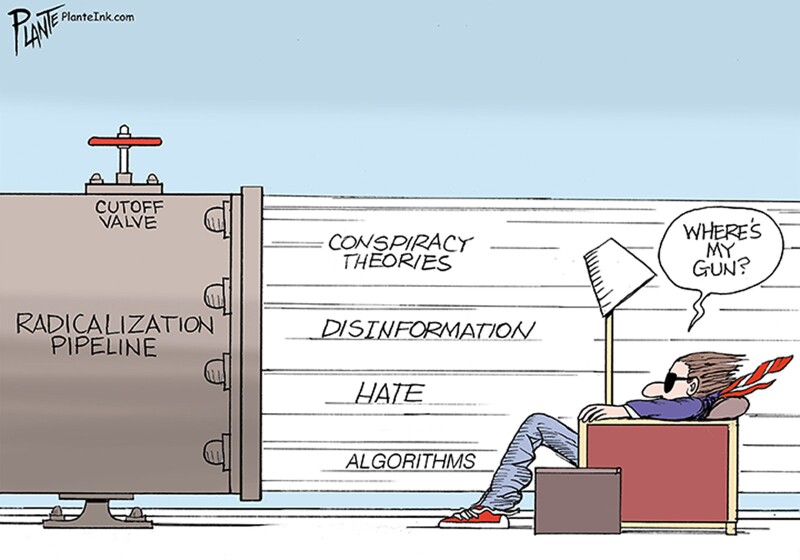On September 18, 2025, renowned editorial cartoonist Bruce Plante tackled the pressing issue of radicalization in his latest cartoon. This work reflects his perspective on the complexities surrounding the topic, sparking conversation and consideration among viewers.
The cartoon presents a thought-provoking image that encapsulates the societal challenges posed by radicalization. Plante’s artistic expression not only comments on the phenomenon but also encourages audiences to reflect critically on the underlying causes and implications. By using satire, he aims to provoke thought and dialogue about how radical ideologies can take root in various communities.
“Art can be a powerful medium for change,” Plante remarked in a previous interview. “It allows us to explore difficult subjects in a way that is accessible and engaging.”
Radicalization, a term that describes the process through which individuals adopt extreme political, social, or religious ideologies, has become an increasingly relevant issue worldwide. The rise of online platforms has facilitated the spread of radical ideas, making it easier for individuals to connect with like-minded groups. This has led to a growing concern among policymakers and communities about how to address the issue effectively.
Plante’s work serves as a reminder of the importance of addressing the root causes of radicalization. Social isolation, economic disparities, and a lack of educational opportunities often contribute to individuals seeking solace in extremist ideologies. Through his art, Plante emphasizes the need for comprehensive solutions that tackle these underlying issues rather than merely reacting to the symptoms.
In recent years, various countries have implemented programs aimed at countering radicalization by promoting social cohesion and providing support to vulnerable populations. These initiatives often focus on education and community engagement as key strategies for preventing radicalization from taking hold.
As society grapples with the implications of radicalization, editorial cartoons like Plante’s play a vital role in fostering public discourse. They challenge audiences to confront uncomfortable truths and consider their role in creating a more inclusive and understanding society. By using humor and satire, Plante invites reflection on a topic that is often met with fear and misunderstanding.
In conclusion, the editorial cartoon from September 18, 2025, not only showcases Plante’s artistic talent but also highlights a significant social issue. As discussions surrounding radicalization continue to evolve, the role of art and public opinion remains crucial in shaping responses to this complex challenge.
